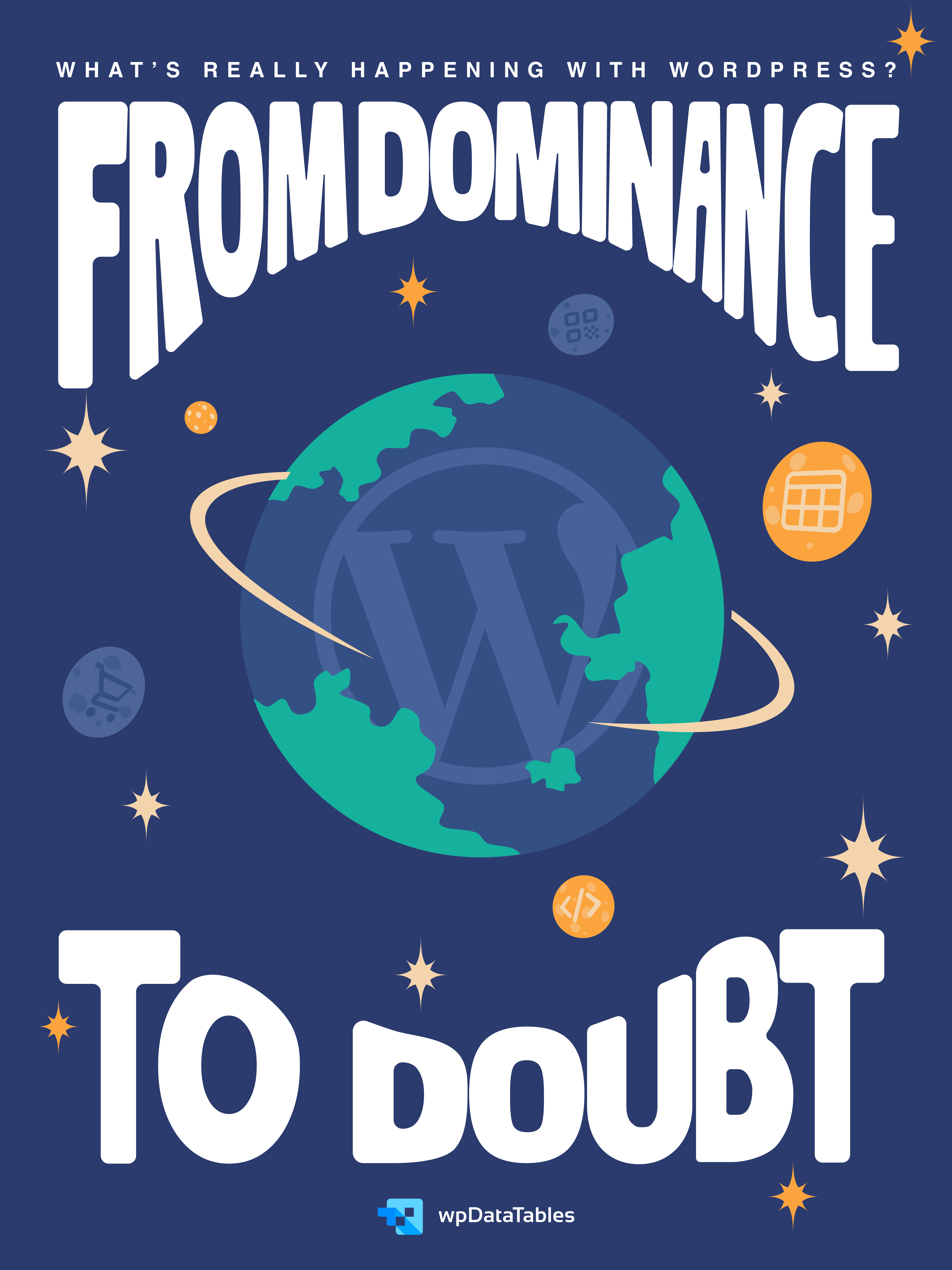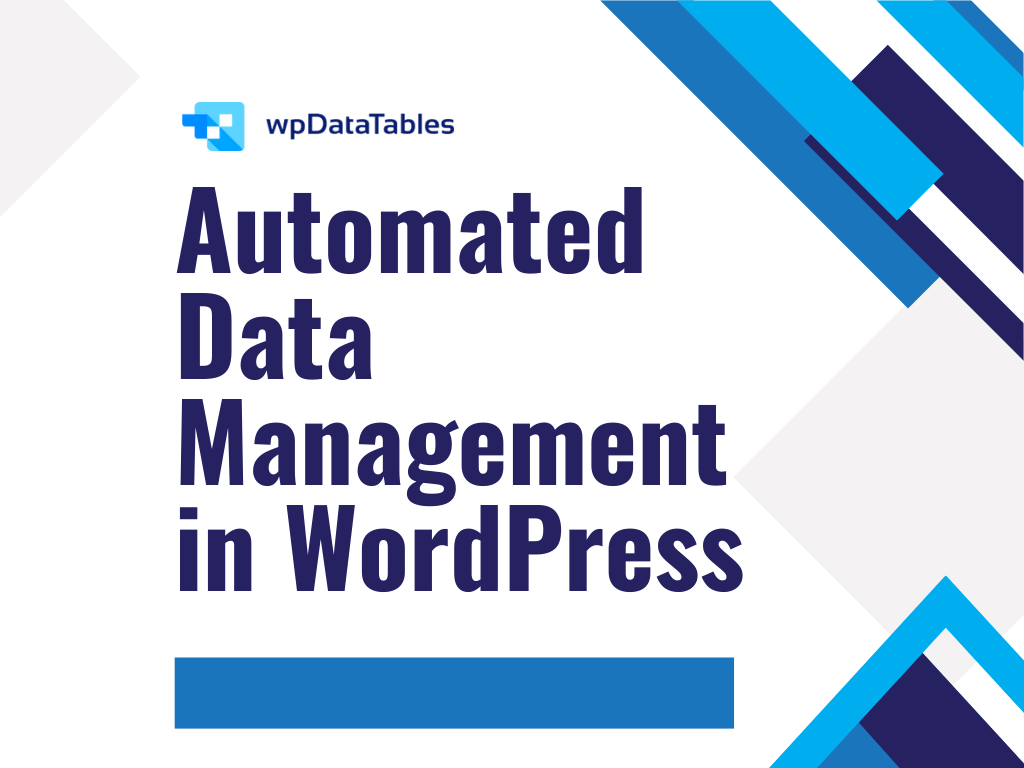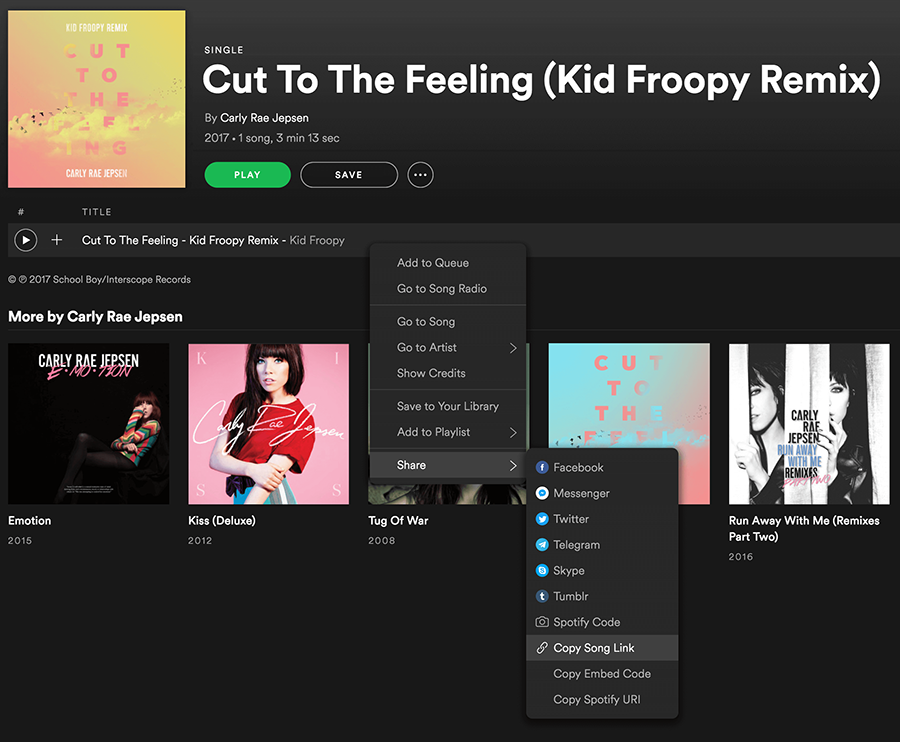Blogger vs WordPress. Which one to choose? Blogger is a simple platform owned by Google where you can write and publish your content on a blog. WordPress, on the other hand, is an independent content management system that lets you build a complete, custom website from scratch.
Although both are popular choices when it comes to blog publishing, they each have their own benefits and downsides. In this article, we will take a look at the main differences between the two so that you can make an informed choice.
Keep in mind that the info you’ll find below is related to WordPress.org (the self-hosted version), and not WordPress.com. Keep reading more about this topic in this article created by our team at wpDataTables and find out who will win the Blogger vs. WordPress battle.
Table of Contents
Making a Choice Between Blogger vs. WordPress
First of all, it’s important to acknowledge that both Blogger and WordPress have earned their place on the market. People use each platform fora different purpose, and so the Blogger vs.WordPress battle won’t have a clear winner for all people and all purposes.
We can only compare these platforms in terms of certain features and aspects, and then decide who gets the point for that category.
Blogger, as its name suggests, is meant to help people create blogs and publish their content instantly. Those who want to run blogs as simple hobbies typically opt for Blogger, as the platform takes care of everything, including hosting and technical maintenance.
WordPress can also be used by hobbyists to create simple blogs, but it is capable of much more than just blog publishing. While most people consider it as the go-to platform for starting a blog, it offers the freedom to create any type of website from online news sites to e-commerce stores.
Compared to Blogger, WordPress allows you to create complex websites from scratch at the cost of greater dedication and effort. It can be used by both beginners and advanced users, but it has a higher learning curve overall.
Even so, you’ll get step-by-step instructions on how to get your website up and running and the WordPress community is always ready to answer any questions you may have.
The Blogger vs WordPress Battle Begins
Let’s move on to the facts. Analyzing Blogger vs. WordPress can’t be done without comparing the features they offer, so here is a breakdown of the major differences:
Website Ownership
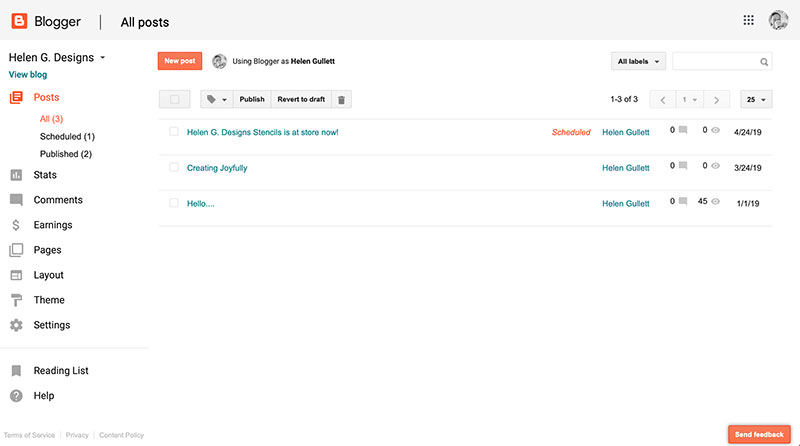
In Blogger’s case, you’ll be bound to Google in terms of website ownership. Because the platform deals with hosting your website, you need to respect the terms and conditions set by Blogger.
Your website will be hosted by Google and it will be connected to your Google account. If you lose access to it, there’s a high chance that you’ll also lose access to your website. You won’t own your website completely.
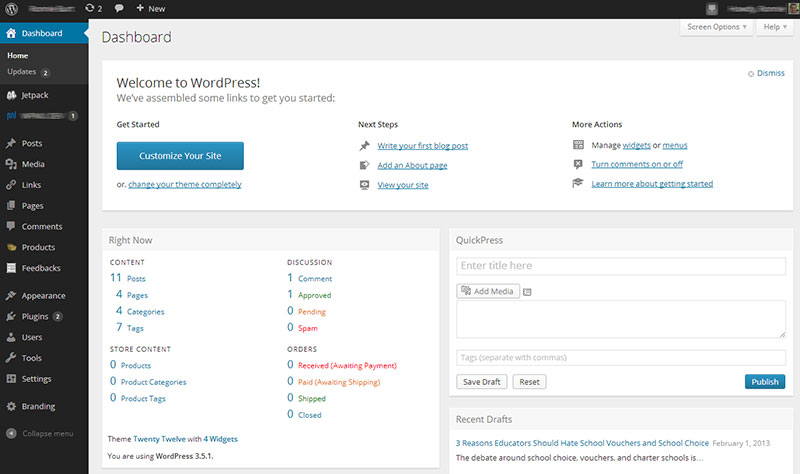
In WordPress’ case, you are free to use your website any way you want. WordPress is an open-source CMS which means that there are no limitations with using it.
Even so, you’ll have to host your website using the services of a web hosting provider. This provider might impose rules regarding website content, so be careful when choosing one.
Accounts
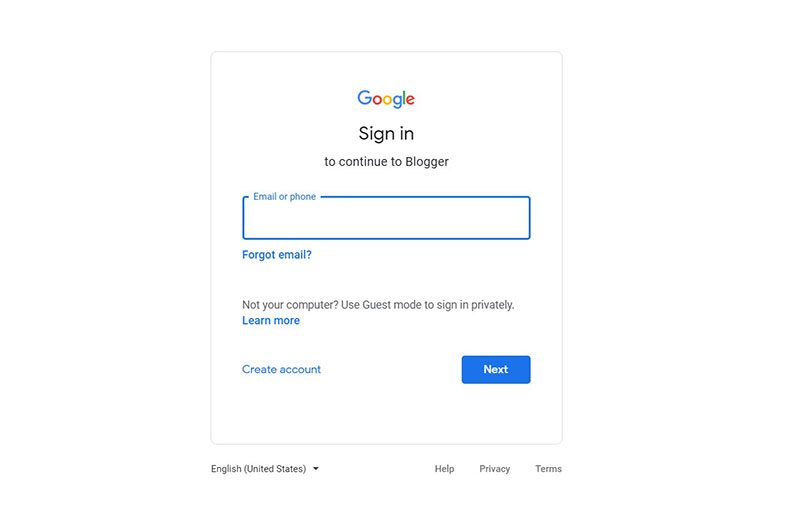
To start using Blogger, you need to set up an account. If you already own a Google account, you can log in with it and go straight to business. Without a Google account, the process will take a couple of minutes longer.
Either way, the sign-up process is not difficult. With this blogging platform, you can manage more than one blog using one single account.
Compared to Blogger, getting started with WordPress is not that easy. Because you are responsible for hosting your website, you will need to take a few extra steps to get started.
Essentially, you’ll need to register a domain name and sign up with your web hosting provider to have your website up and running. Take into consideration that domain registration can take up to a few hours.
Settings
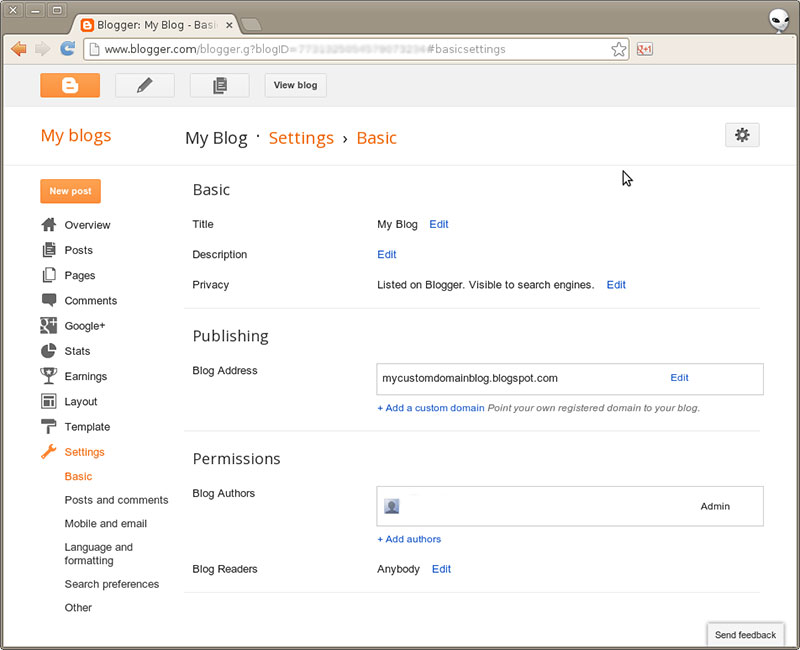
In terms of control options, both blogging platforms have centralized settings panels. Both systems are neatly organized and feature plenty of options to play with.
Blogger has a fine-tuned settings panel with enough features to modify the basic functions on your website. Even though it is much more limited when comparing it to WordPress, it’s enough for a simple blog.
It won’t meet the needs of a complex website with specialized pages, though, so keep that in mind when comparing Blogger vs.WordPress.
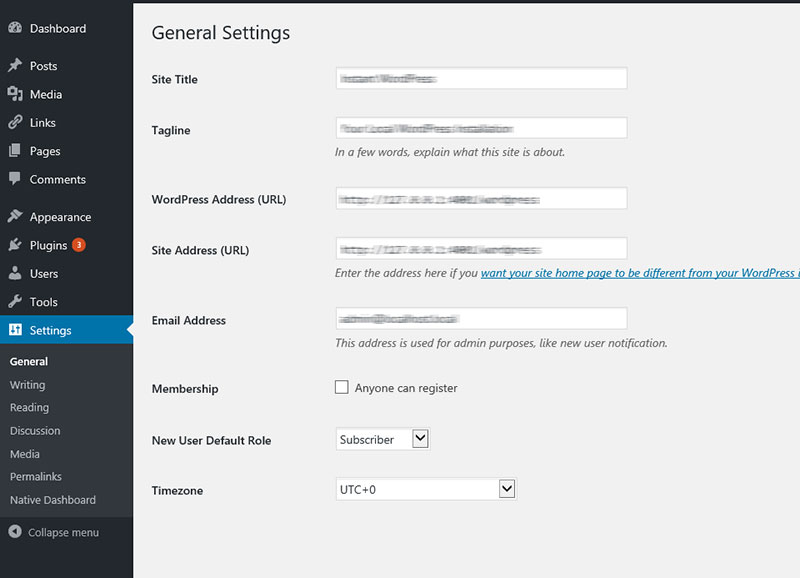
The self-hosted version of WordPress gives you tremendous control over all aspects of your website and content. With advanced themes and plugins, you can extend the platform’s default options with ease — and many of them are free, too.
Moreover, you can set up your website for monetization. Making money from blogging is a critical factor that usually influences the decision to choose one platform over another.
With WordPress, you can easily set up advertising with ad networks and use affiliate marketing platforms. There are several affiliate programs out there that could increase your revenue.
Personalization
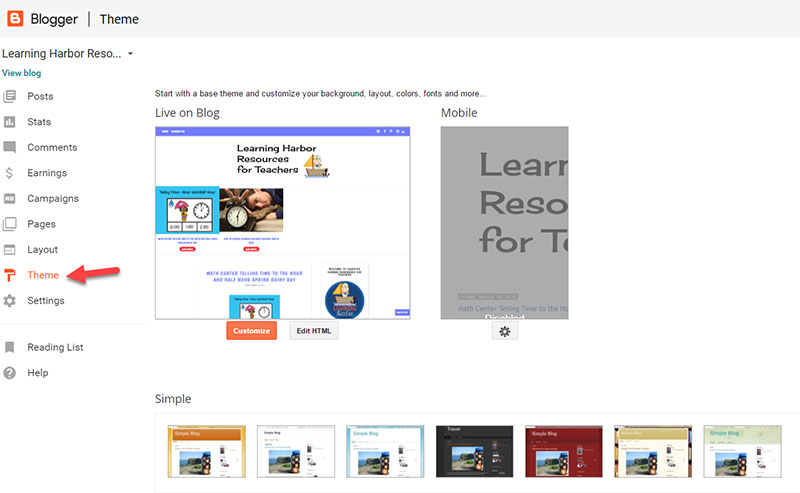
Blogger features dynamic themes that work well on all sorts of platforms (both mobile and desktop) and static themes that have a fixed-width. There are only eight dynamic themes you can choose from, which limits your options quite a lot.
From this standpoint, Blogger is not as flexible as one would need for a serious blog.

Because of its open-source nature, WordPress is far more customizable. It can’t even be compared to Blogger, as you can choose between thousands of themes, all with their unique features.
You can customize your website using plugins as well, which can add other functionalities to the site. Website developers can create their own themes and plugins and implement them on their websites as well, so if you have advanced tech knowledge, take that into account.
Appearance
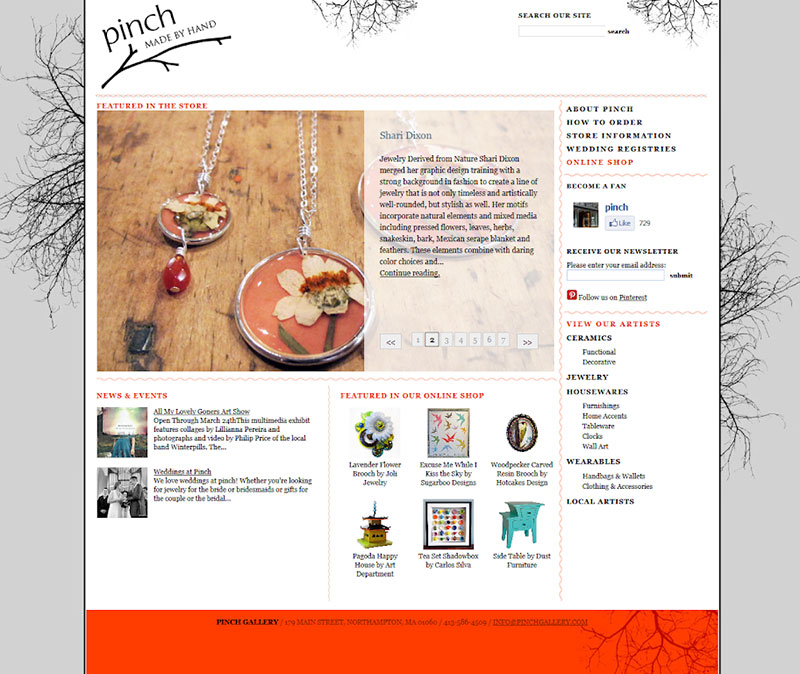
When talking about Blogger vs. WordPress in terms of appearance, the latter looks far more professional than the former. Why? Blogger gives you the chance to choose between some themes, but that doesn’t make your website unique.
The internet will be full of similar websites and you’ll also have to resign yourself to the default URL that lookslike: example.blogspot.com.
If you want to convert your URL into something more professional like example.com, you’ll have to pay for a domain, although the same goes for WordPress.

You can change the appearance of WordPress very easily. There are all sorts of plugins out there that modify various aspects of the CMS. Its open-source nature lets people modify the code behind the platform to create something unique.
This is why WordPress websites tend to look more professional than Blogger ones. Plus, you can create stunning portfolios and e-commerce sites (amongst many other types of sites that rely on good looks), while Blogger is a blogging platform only.
Exporting
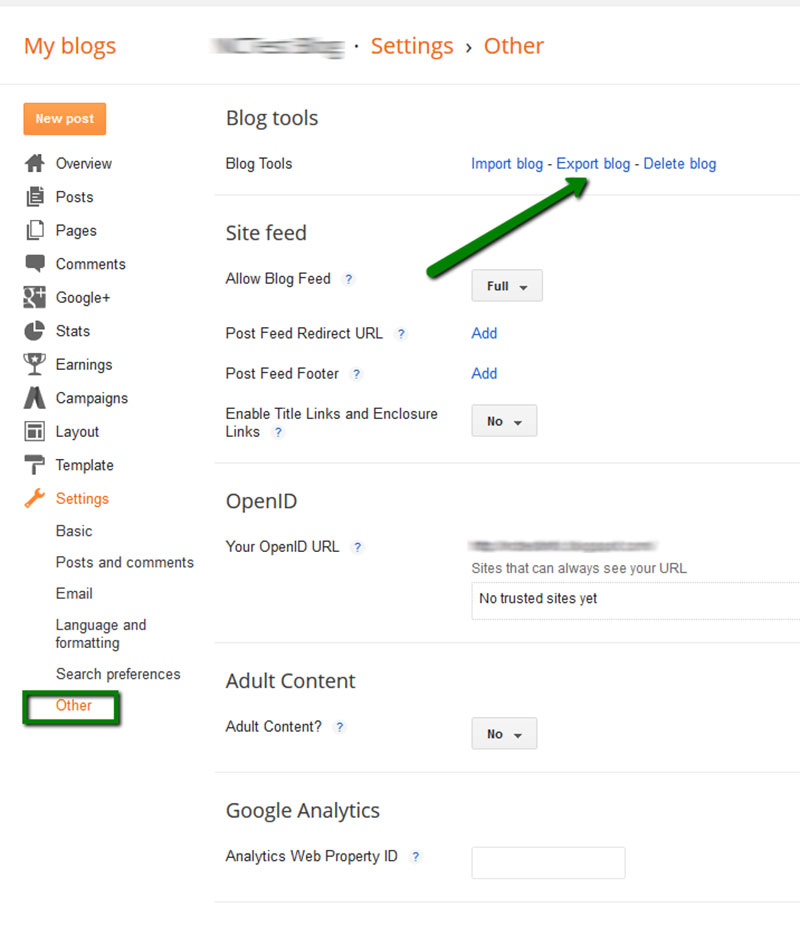
If you are using Blogger, you may encounter some trouble with moving the site from this platform to another. It is possible, but it takes loads of time and effort to do it, not to mention that you’ll lose your SEO score and most of your user base while you do it.
Even though you can export your content flawlessly to some other platform, Blogger is not the best when it comes to website portability.
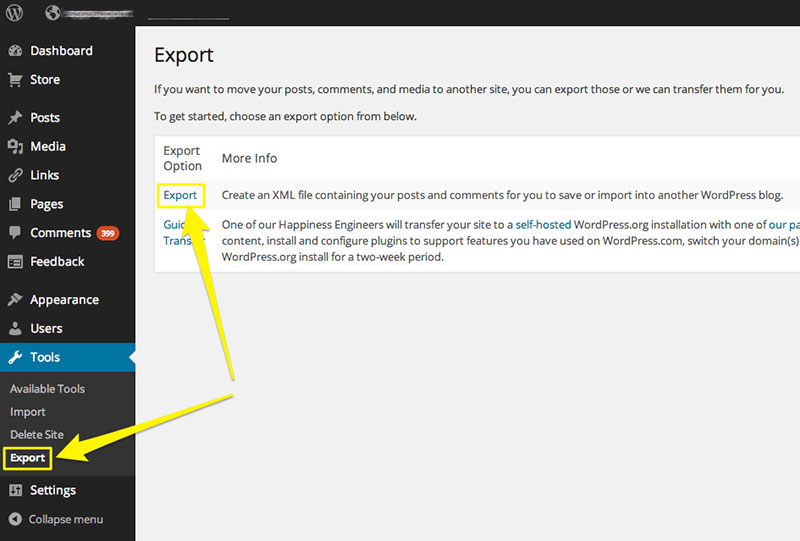
WordPress, on the other hand, gives you the chance to move your website when you want, where you want, without all the hassle. You can move the site to a new host, change the domain name, or switch the content management system you use without any risks involved.
Support
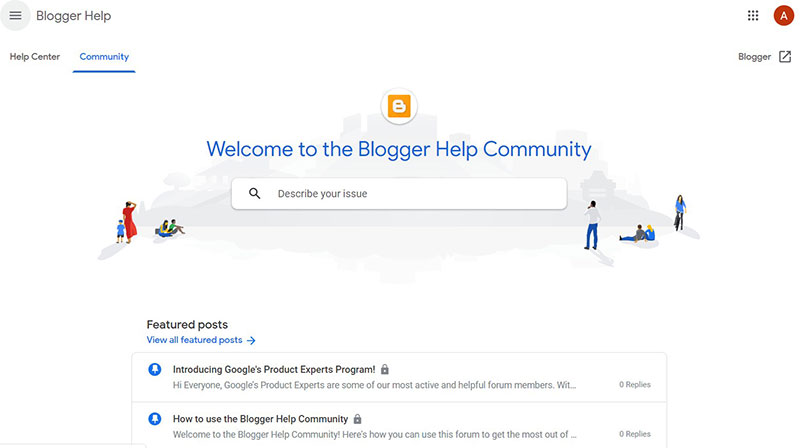
For those who are not as tech-savvy, support —in all forms —is paramount. Blogger doesn’t offer much help to its users. There are documentation files hidden around if you want to learn more about some functions of the platform, but it is somewhat limited.
Support forums are also less numerous than in the case of WordPress, so you’ll find answers to your questions harder than you would with WordPress.
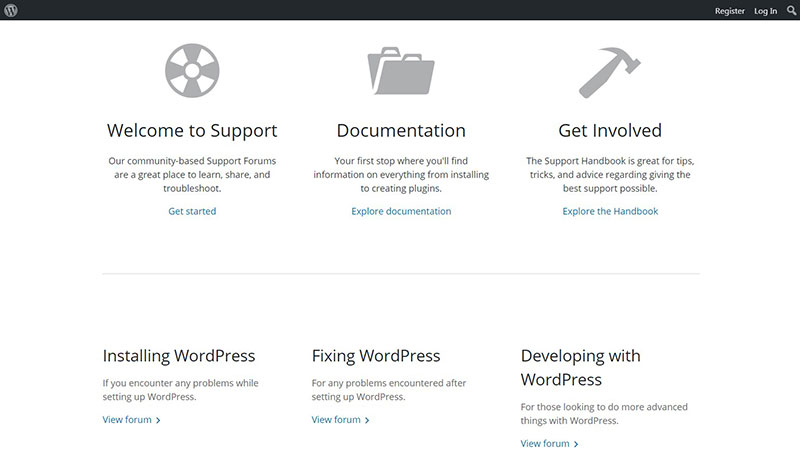
As mentioned before, WordPress involves a higher learning curve, even though the interface is user-friendly. It’s full of features that you’ll need to have some knowledge of in order to use.
Luckily, there are numerous online materials to help you with mastering WordPress, as well as official WordPress articles. The community is large and devoted, which means there will be people with a lot of experience to respond to your burning questions.
Future

Blogger hasn’t been updated for quite some time, which is a worrying fact. Google killed some of their popular services before, so users should expect a sudden move from the company. The demise of Blogger is an ever-present possibility, whereas WordPress will likely always be there.
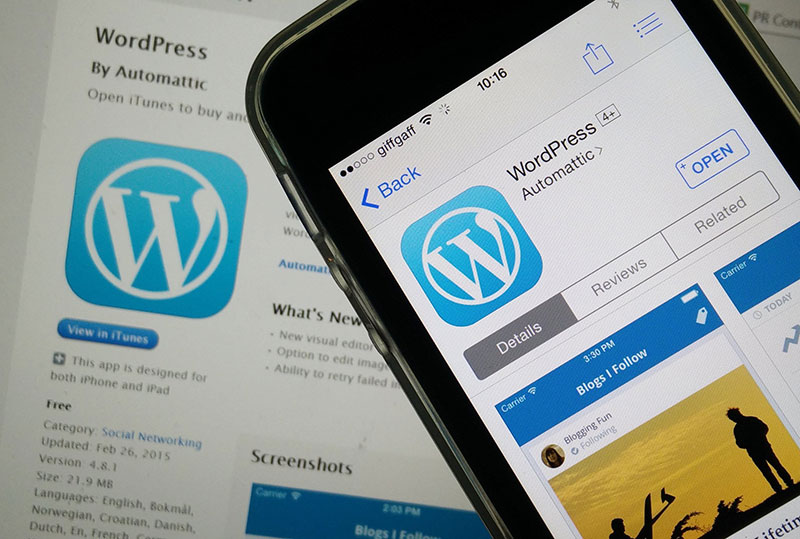
It’s safe to say that WordPress will be around for quite a while, taking into consideration that it powers about 30% of the websites you can find on the internet.
There’s a devoted community that backs the platform and huge businesses depend on WordPress’ services. This should be reassuring enough for the future.
FAQ on Blogger vs WordPress
Which platform is easier for beginners, Blogger or WordPress?
Well, ya know, when it comes to ease of use for newcomers, Blogger is kinda more straightforward. It’s a plug-and-play solution. You sign up and start blogging, simple as that.
But if you’re looking for more control and customization, WordPress, especially WordPress.org, is the way to go. Though, it has a steeper learning curve. But hey, no pain, no gain, right?
What’s the difference between WordPress.com and WordPress.org?
Alright, this one’s a classic! WordPress.com is a hosted service. Think of it as renting an apartment – it’s all set up for ya. On the other hand, WordPress.org is self-hosted.
It’s like buying a piece of land and building your own house. You get the freedom, but there’s more responsibility in terms of setup, web hosting, and maintenance. Still, for those who like to get their hands dirty, it’s a dream!
Can I switch from Blogger to WordPress without losing my content?
Totally! In the vast universe of blogging software, there are tools and plugins that allow you to import content from Blogger to WordPress.
You won’t lose your precious posts. But hey, always back up before making a big move. You know, just to be on the safe side.
Is it more expensive to run a blog on WordPress than on Blogger?
Hmm, tricky one! Blogger is free, including hosting. But if you want a custom domain, there’s a cost. Now, WordPress.org requires you to buy web hosting, but the software itself? Free.
And then there’s WordPress.com with various plans. It can range from free to a bit pricey. But think about the potential and blog monetization options! Sometimes you gotta spend money to make money.
How customizable is Blogger compared to WordPress?
So, Blogger gives you some neat templates, and you can tweak them a bit. But WordPress? It’s a whole new world! You get themes, plugins, and widgets galore.
If you’re a customization junkie, WordPress will feel like a playground. So much room to make your blog truly yours.
Is Blogger or WordPress better for SEO?
Ah, the golden SEO question! Both platforms have the basics covered. But with WordPress, especially with the right plugins, you can dive deep into the SEO rabbit hole.
And as we all know, good SEO can make a world of difference. So, if SEO is your game, WordPress might be your name.
Which platform is more secure?
Safety first, right? While both platforms have their merits, WordPress requires more attention. Being open-source means it’s more prone to vulnerabilities.
But fear not! With regular updates, good hosting, and some security plugins, you can make it Fort Knox! Blogger, being a Google product, has its security perks. Still, nothing’s invincible.
Can I set up an e-commerce store on Blogger and WordPress?
Dreaming of selling stuff, huh? Blogger isn’t really built for e-commerce. You can integrate some third-party tools, but it’s kinda makeshift.
WordPress, on the other hand, has plugins like WooCommerce, turning your blog into a bustling online store. Cha-ching!
Do I own my content on both platforms?
Oh, ownership, the big O. With Blogger, your content is on Google’s servers. Technically, they have a lot of control. WordPress, especially the .org version, gives you full control. Your content, your rules. It’s like owning your own blogging kingdom.
Which platform has a better community and support?
Both platforms have their loyal fans. Blogger has its circles, but the WordPress community? Massive! With forums, tutorials, and even global events, it feels like a huge blogging community family. So if community vibes are your thing, WordPress might feel more like home.
Blogger vs WordPress: The Verdict
There’s no such thing as the best blogging platform to create a blog on, but you can tell where one platform exceeds the other in terms of features. This Blogger vs. WordPress comparison should have answered most of the questions you have about each platform.
Hopefully, deciding between the two is easier now that you know where each one gains and loses points. As mentioned, both Blogger and WordPress are worthy of your attention and they deserve a try!
Next step after creating your blog? Promoting the blog online to get visitors.
If you enjoyed reading this article on Blogger vs WordPress, you should check out this one about WordPress alternatives.
We also wrote about a few related subjects like WordPress.com vs WordPress.org, Joomla vs WordPress, WordPress vs Wix and content management system.


